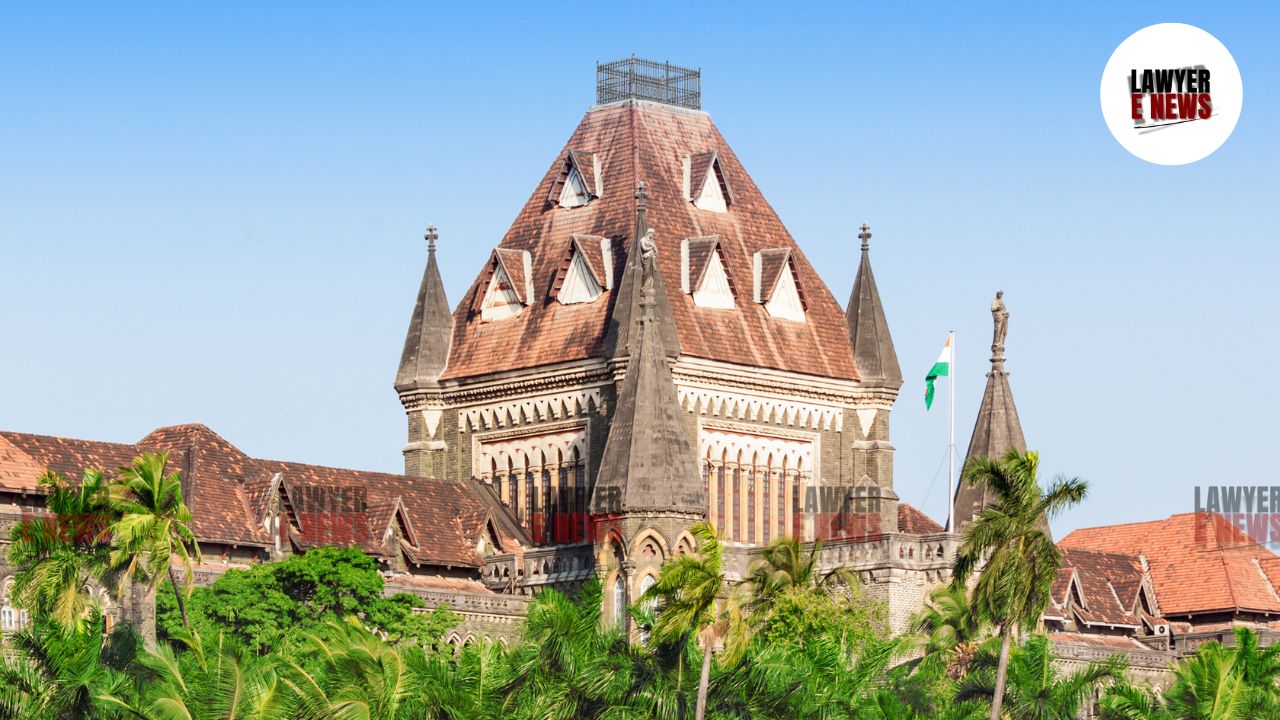-
by sayum
14 February 2026 2:22 PM



Disclosure of marks obtained in a public recruitment process does not constitute an ‘unwarranted invasion of privacy’ as it is related to a public activity. The Bombay High Court has delivered a significant judgment affirming the principles of transparency and accountability in public recruitment processes, ruling in favor of a candidate who sought information under the Right to Information (RTI) Act regarding the marks obtained by other candidates in a recruitment examination for the post of Junior Clerk. The court held that such disclosure was justified by public interest and does not constitute an unwarranted invasion of privacy.
The petitioner, Shri Onkar Dattatray Kalmankar, participated in a recruitment process for the post of Junior Clerk at the District Court in Pune in response to an advertisement in March 2018. After attending various stages of the selection process, including written and typing tests, the petitioner did not find his name on the final list of selected candidates. Dissatisfied with the non-transparency in the recruitment process, he submitted an RTI application on February 20, 2019, requesting details about his own scores and the scores of other candidates who had appeared for the examination.
The Public Information Officer (PIO) denied the petitioner’s request, invoking Rule 13(e) of the Maharashtra District Courts Right to Information (Revised Rules), 2009, which exempts certain information related to examinations from disclosure on grounds of confidentiality. The PIO's decision was upheld by the First and Second Appellate Authorities, leading the petitioner to approach the High Court through a writ petition.
Right to Information and Public Interest: The primary issue was whether the disclosure of marks obtained by candidates in a public recruitment process falls under the ambit of “personal information” exempted from disclosure under Section 8(1)(j) of the RTI Act. The petitioner argued that the disclosure would enhance transparency and accountability in the recruitment process, serving the public interest.
Confidentiality under Rule 13(e) of the Maharashtra District Courts RTI Rules: The respondents argued that the recruitment process's confidentiality must be protected as per Rule 13(e), which restricts access to information affecting the confidentiality of examinations conducted by the judiciary.
Privacy Concerns under Section 8(1)(j) of the RTI Act: The respondents further contended that the marks of other candidates constituted personal information and disclosure would amount to an invasion of privacy.
Disclosure of Marks in Public Recruitment: Not an “Unwarranted Invasion of Privacy”
The court observed that marks obtained in a public recruitment process relate to a public activity and do not constitute personal information exempted from disclosure under Section 8(1)(j) of the RTI Act. The bench held
“The marks obtained by candidates in a public recruitment process cannot ordinarily be held to be ‘personal information, the disclosure of which has no relationship to any public activity or interest.’ Furnishing such information would not cause an unwarranted invasion of privacy.”
The court clarified that the RTI Act aims to promote transparency and accountability in public functions. Since the recruitment process for a government post is inherently a public activity, the disclosure of marks serves the larger public interest by enhancing transparency in government hiring processes.
The court examined Rule 13(e) of the Maharashtra District Courts RTI Rules, which protects examination confidentiality. However, it clarified that the confidentiality of an examination pertains to its ongoing process, not to the marks obtained post-completion. The court stated:
“Once an examination is concluded, disclosure of marks does not affect confidentiality but rather enhances transparency.”
The court found that disclosure practices in other districts, such as Wardha, where similar information had been disclosed publicly, further justified the petitioner's request and was in line with the transparency goals of the RTI Act.
The court distinguished between genuinely private information and information relevant to public recruitment. It cited the Supreme Court precedent in Central Public Information Officer, Supreme Court of India v. Subhash Chandra Agarwal, which underscored that transparency in public functions outweighs privacy concerns in certain cases. The bench observed:
“In the context of a public examination for selection to a public post, disclosure of marks obtained by candidates would not constitute an unwarranted invasion of privacy, particularly where larger public interest justifies such disclosure.”
The court emphasized that transparency in recruitment processes promotes public confidence and aligns with the RTI’s objective of fostering openness and accountability in government functions.
The Bombay High Court partly allowed the petition, setting aside the PIO's denial of information. It directed the respondents to disclose the marks obtained by candidates listed from serial nos. 1 to 363 in the screening test, Marathi and English typing tests, and interview. The court specified that the information should be furnished within six weeks upon payment of the prescribed costs by the petitioner.
“Disclosure of marks in a public recruitment process promotes transparency and public confidence in the fairness of selection processes, in alignment with the RTI Act’s goal of ensuring transparency and accountability.”
The court’s decision underscores the importance of transparency in public recruitment processes and limits the use of privacy exemptions to withhold information that pertains to a public function.
Transparency in Public Recruitment: The court’s ruling reaffirms that information related to a public recruitment process should be disclosed under the RTI Act, as it pertains to a public function.
Limited Scope of Confidentiality: Rule 13(e) of the Maharashtra District Courts RTI Rules cannot be used to deny disclosure of marks after an examination concludes, as it does not impact the examination’s confidentiality.
Balancing Privacy and Public Interest: The judgment reflects a balanced approach in interpreting privacy under Section 8(1)(j), asserting that public interest and transparency take precedence in cases involving public recruitment.
Date of Decision: November 11, 2024
